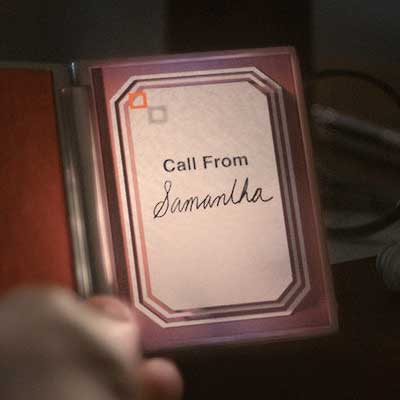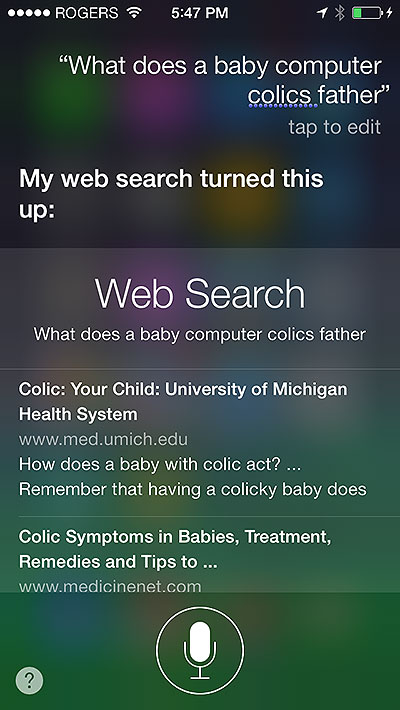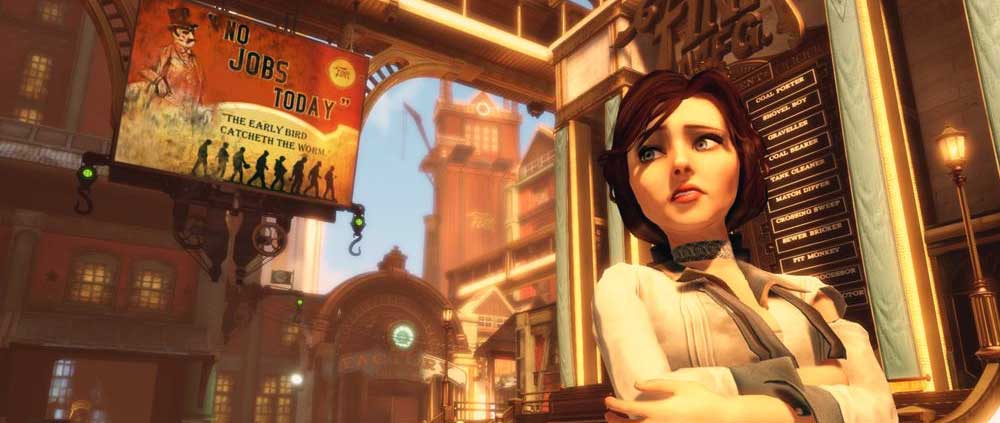This piece contains light spoilers for the recent film Her.

In Spike Jonze’s Her, the first ever artificially intelligent operating system is released. Samantha is, essentially, a version of Siri that is almost indistiguishable from a real person. Before long, people around the world fall in love with their Samanthas. It sounds strange at first to call your connection with a computer program “love”, but over time society gets used to the idea. These AIs express thoughts and feelings as nuanced and engaging as humans’, with the added bonus that they’re hyperintelligent and joyfully learning about the world we’ve grown to take for granted.
As of yet, we’re a long way from developing a Samantha. For a painful demonstration of just how far we are, try and have a thoughtful conversation with Siri. Ask her something meaningful. Tell her a joke.
 Perhaps it says something about me, but when I first tried Siri, I really wanted to have a thoughtful conversation with her. I wanted to connect, to treat her like a friend. All she could do is offer me the results of a web search.
Perhaps it says something about me, but when I first tried Siri, I really wanted to have a thoughtful conversation with her. I wanted to connect, to treat her like a friend. All she could do is offer me the results of a web search.
Siri and Samantha’s job of learning about your world makes them very helpful. Unfortunately, is also makes them very hard to get right. You know your own world intensely well, setting an incredibly high bar for any AI who seeks to understand it. We’re many years out from connecting meaningfully with AIs in our world.
On the other hand, if we visit their world, things get more interesting.
A visit to Columbia
This past summer I explored the colourful, steampunky world of Bioshock Infinite. Throughout the game you are accompanied by Elizabeth, the first video game companion, arguably, that has felt real. Her moods are infectious, her actions are believable, and she is genuinely helpful to have around. Thanks to countless hours of scripting and level design, she comes alive.
As you’d expect from an in-game companion, we spent many hours together. I saved her life, she saved mine. More importantly, she kept me company, provided insight, and made me laugh. We had played a song together of all things. I was glad to have her around.

Anyway, most of the way through the game, a very strange encounter unfolded in front of me with the oddest of characters, the Lutece twins. The moment I looked away they disappeared, and I was left to puzzle over what the hell I had just seen and heard.
As a matter of course, I turned to look back at Elizabeth. I suppose I wanted a sanity check. It’s ridiculous, but I was looking to her for validation of this bizarre experience we’d just shared. This is silly thing to do to a computer-controlled avatar, I admit.
Neverthless, I did look back to gauge her reaction, and she was looking back at me. Her face said exactly the same thing that mine did: “What the fuck was that?” I felt a beat of the exact commiseration I’d sought - acknowledgement of our shared experience. I laughed with her.
The next moment, I was struck by the sheer craziness of what I’d just done. I had emotionally connected with a Lua script.
From Elizabeth to Samantha
Now, Elizabeth is not a even an AI by many definitions. She’s not nearly as sophisticated as Samantha, as flexible as Cleverbot, or even as knowledgeable as Siri. She’s a set of scripts, and that in that moment in that game, she will always have that expression, keyed to a table of emotions available to her avatar. But to me, for that moment, she made me feel validated and safe.
Of course, emotionally connecting with fictional characters is not new. We feel pain when somebody we like dies in a film or television show. What’s new is that the relationships we can now have through games can transcend the relationships we could have with characters on other screens. They’re not complicated relationships yet, but the path from Elizabeth to Samantha will be incremental.
A relationship doesn’t need to be complicated or even dynamic for us to form a strong emotional bond. We feel love when a kitten climbs into our lap, even if she really just likes the warmth. Hell, look at Potal’s Companion Cube. It’s an inanimate object, but you want to like the Companion Cube. You care about it. Our brains are wired for that.
The world is going to get very strange over our lifetimes. Games, and what evolves out of them, are going to challenge us socially and culturally well before they get to the sophistication of Her. Computer programs that incite love aren’t going to be suddenly foisted upon the world one day. Rather, they will slowly invade our lives year by year until we won’t remember what life was like without them. It might be great, and it might be hard. Either way, it will be interesting.
